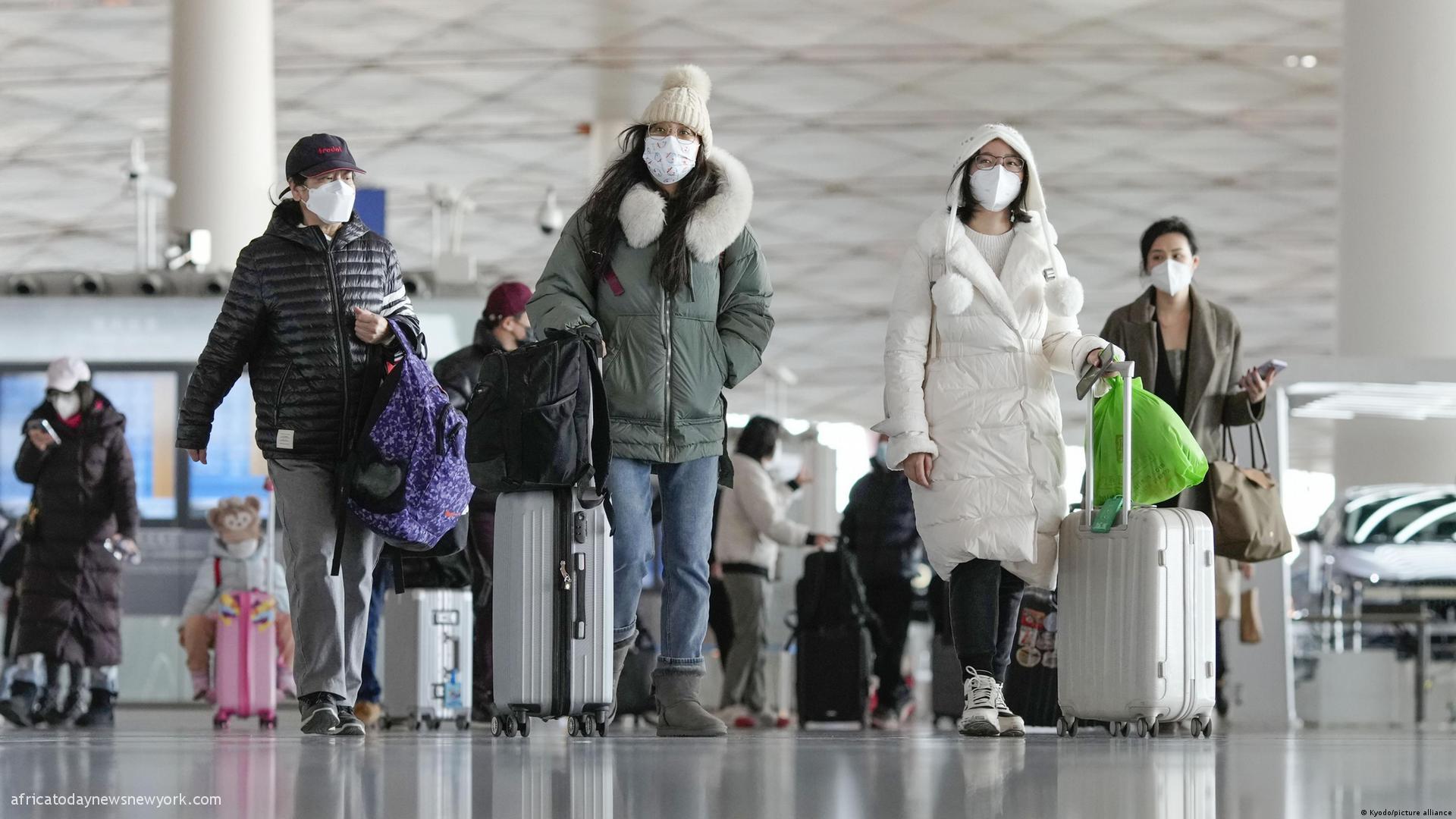The US is considering imposing new COVID-19 restrictions on Chinese arrivals, after Beijing announced it would reopen its borders next month.
The lack of transparency surrounding the virus in China, where cases are on the rise, according to American officials, is to blame.
Concerned about importing COVID-19 cases, Japan, Malaysia, and Taiwan have already announced stricter precautions for Chinese travellers, including negative tests.
Beijing has stated that the implementation of COVID-19 guidelines should be done “scientifically.”
Although this announcement came before Beijing declared it would loosen its rigid border policy, India is likewise speeding up its preparations for Chinese arrivals.
Passport applications for Chinese citizens wishing to travel internationally will resume from 8 January, the country’s immigration authorities have said.
Read Also: Nigerian Govt Finally Suspends COVID-19 Tests For Travellers
Travel sites have reported a spike in traffic, leaving some countries fearful over the potential spread of COVID-19.
‘There are mounting concerns in the international community on the ongoing COVID-19 surges in China and the lack of transparent data, including viral genomic sequence data,’ US officials said in a statement quoted by news agencies.
Wang Wenbin, China’s foreign minister spokesperson, subsequently accused Western countries and media of “hyping up” and “distorting China’s COVID-19 policy adjustments”.
He said China believed all countries’ COVID-19 responses should be “science-based and proportionate”, and should “not affect normal people-to-people exchange”.
Mr Wang called for “joint efforts to ensure safe cross-border travel, maintain stability of global industrial supply chains and promote economic recovery and growth”.
The UK and Germany each said they are monitoring the situation closely, but are not currently considering new restrictions for Chinese travellers. A Downing Street spokesperson said the number of cases in Britain was still “relatively low”.
